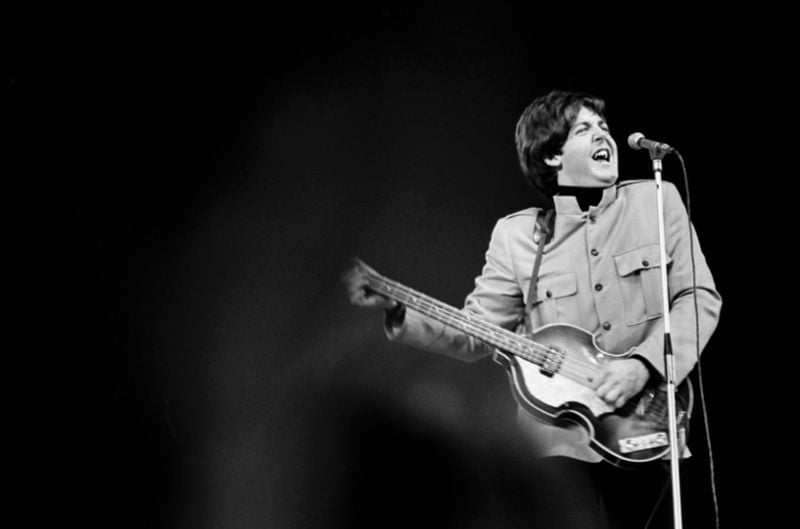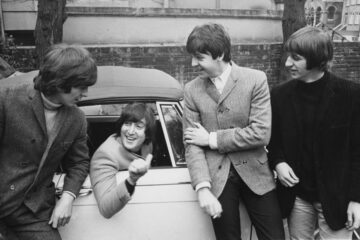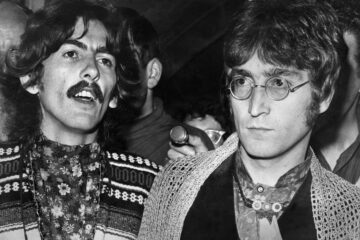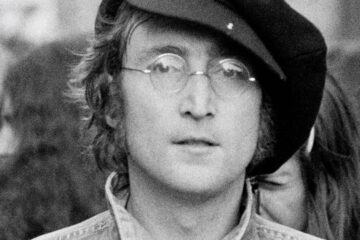“Two of us riding nowhere / Spending someone’s hard-earned pay / You and me Sunday driving / Not arriving on our way back home,” Paul McCartney sings, reminiscing on his favourite pastime, bundling into the car with his wife Linda and driving aimlessly, just to be able to chat. The title is a beautiful love story in three words – ‘Two Of Us’ – perfectly encapsulating the simple, joyous domesticity that colours McCartney’s love songs.
It seemed like it was the one thing he could cling onto. Since being a teenager, McCartney’s life revolved around The Beatles, especially John Lennon. By the early 1970s, when the band was collapsing and eventually calling it quits, with their musical and personal relationships so frayed that the lines between the friends snapped entirely, it was a tough situation to get through.
During a period of depression after the band’s dissolution, the musician retreated into his home and held onto two things: his home life with his wife and his music. His love for one seeped into the other, and the music that emerged from that period and beyond is charged by this heartwarming silver lining that paints a plain and easy domestic life into a glorious thing to celebrate.
“Every day, I don’t want to get up / Get out of my bed,” he sings on ‘Every Night’, hinting at the dark period he was navigating through. It’s a song about not knowing what to do, feeling pulled in every direction by expectations, disappointments and anxieties about the future. But when the chorus hits, one clear and decisive wish comes through. “But tonight I just want to stay in and be with you,” he sings.
The “You” is the key here. In 1969, Paul McCartney married Linda Eastman, a woman he loved so much that he couldn’t help but write a song called ‘The Lovely Linda’ which is nothing more than the daydreaming “la la la” of complete adoration.
The impact of Linda McCartney on Paul’s life is impossible to understate. Not only did she inspire him musically, but she also collaborated with him on many albums and played a crucial role in their band, Wings. But his wife seemed to suddenly give him a sense of stability that he’d really never known. The musician was only 14 when his mother died, forever altering his home life, and then from the age of 20, he was on the road with the band, moving around and being chased everywhere he went by screaming fans. His life with the Beatles wasn’t conducive to a settled domestic life or a stable relationship. And while the end of his band was something to mourn, there seemed to be this moment where he looked around at what he was left with in the form of a wife he adored with a stable home and children and was utterly enamoured by what he found.
Enamoured is the perfect word because even in his most domestic love songs, they’re still energised by a total and infatuating excitement. It buzzes from their mutually made album, Ram, with tracks like ‘Heart Of The Country’ celebrating their sweet home away from the riff-raff and the love that fuelled it. “Come on, little lady / Lady, let’s eat at home,” he sings on ‘Eat At Home’, seeing a simple homecooked meal with his wife as such a glorious event that it required a theme tune. “My love is long,” he declares on ‘Long Haired Lady’ as he sings of his enduring desire for and committed vows to Linda, courting her over and over in the track.
Even on some of his biggest, most anthemic love songs, like the ones he wrote as part of Wings, the core of the song feels so beautifully simple. On ‘My Love’, he writes an entire ballad about the excitement of knowing that he can always head home to his wife. “And when I go away / I know my heart can stay with my love / It’s understood / It’s in the hands of my love,” he sings, weaving poetry about the majesty of reliability and trust. Or even on ‘Silly Little Love Songs’ where he’s acknowledging the often corny and overblown nature of the form, the track climaxes into nothing more than the simple declaration of “I love you”, sung over and over as a statement that it needs to more explanation, no vast imagery nor metaphors. That it was merely a fact he was delivering, plain and simple and perfect that way.
McCartney is never demanding the world. He’s not asking for a love that makes him feel like some kind of superhero or moves mountains and defies nature in its grandness. Instead, he’s simply grateful for the love he has and the life they have together, seeing that as miraculous enough. “Maybe I’m amazed at the way you help me sing my song / You right me when I’m wrong / Maybe I’m amazed at the way I really need you,” he writes, baffled by the strength of his love even in the smallest of ways and singing of those small ways at the epitome of the feeling because maybe they are.



